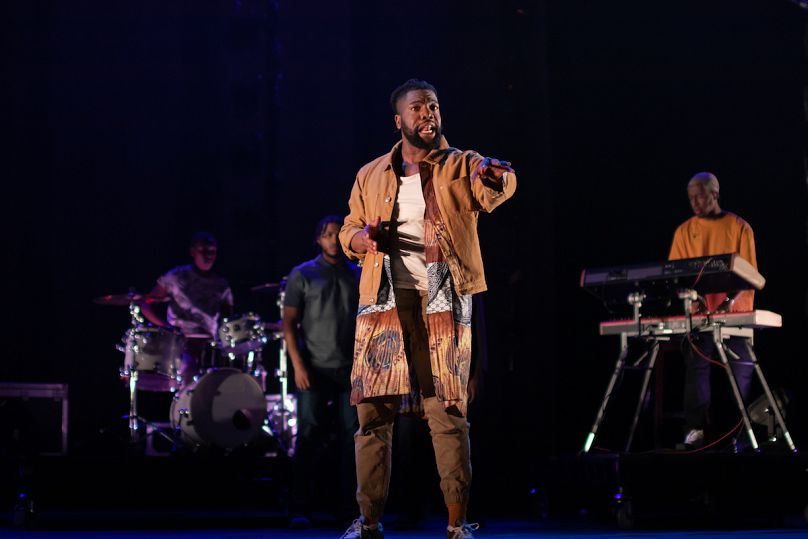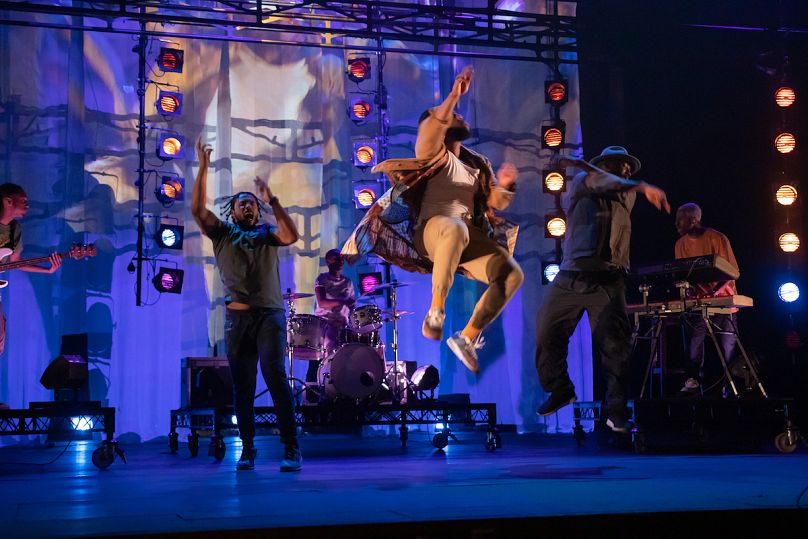Actor Fehinti Balogun’s new multimedia show reveals his personal journey into climate activism as a young British Black man.
The COP26 Summit is underway in Glasgow, opening up urgent conversations on the climate emergency - but what about those that feel excluded? Those who have been most impacted by climate change, yet their experiences are not reflected in discussions?
A new filmed performance, Can I Live?, aims to address the lack of diversity at the heart of the British climate movement in particular, and will be screened as part of COP26’s official programme.
Written and performed by actor and activist Fehinti Balogun (I May Destroy You, Walden), and directed by Daniel Bailey, with co-direction by Simon McBurney, the film energetically combines hip-hop, theatre and spoken word to unravel Fehinti’s personal journey into climate activism, empowering previously underrepresented audiences.
“I’m going to explain what climate emergency means to us practically – right now – from the perspective of a young Black man living in London. I want us to feel seen. To me it is resistance. It is activism,” Fehinti said.
Elevating new voices
Fehinti hopes to make conversations on climate change more accessible to a global audience, in particular the people of colour that have previously felt excluded from larger discussions.
“For a long time, I didn't hear anyone talk about [the] climate crisis in a way that made sense to me and my experiences, and I think that is what excludes so many of us from the conversation," Fehinti said.
"Yet, for many people the climate crisis is already a deadly situation. Often we don't make the connection between the colonial history of Britain and these climate extremes, or the continuation of that colonial mindset which makes it worse. Nor do we think about the thousands of immigrants who come to the UK to send money home to family struggling with climate crisis related issues: rebuilding, food, flooding.”
After watching the filmed performance, audiences are invited to discuss its message, contemplating their own personal experiences with climate change and ways in which they can get more involved with activism. It’s a space that speaks to individuals, and helps them to overcome feelings of powerlessness and invisibility in the face of such an important - and often terrifying - topic.
“For a long time this conversation has been colonised and the global majority are the ones who often bear the weight of outcomes and decisions made. Today we ask you to come and be a part of this, come roll with us and let's see how we can make this place feel like home again,” Director Daniel Bailey said.
Can I Live? will be screened in-person at Glasgow’s Centre for Contemporary Arts on the 3rd November, with a digital tour to continue until November 2021.













